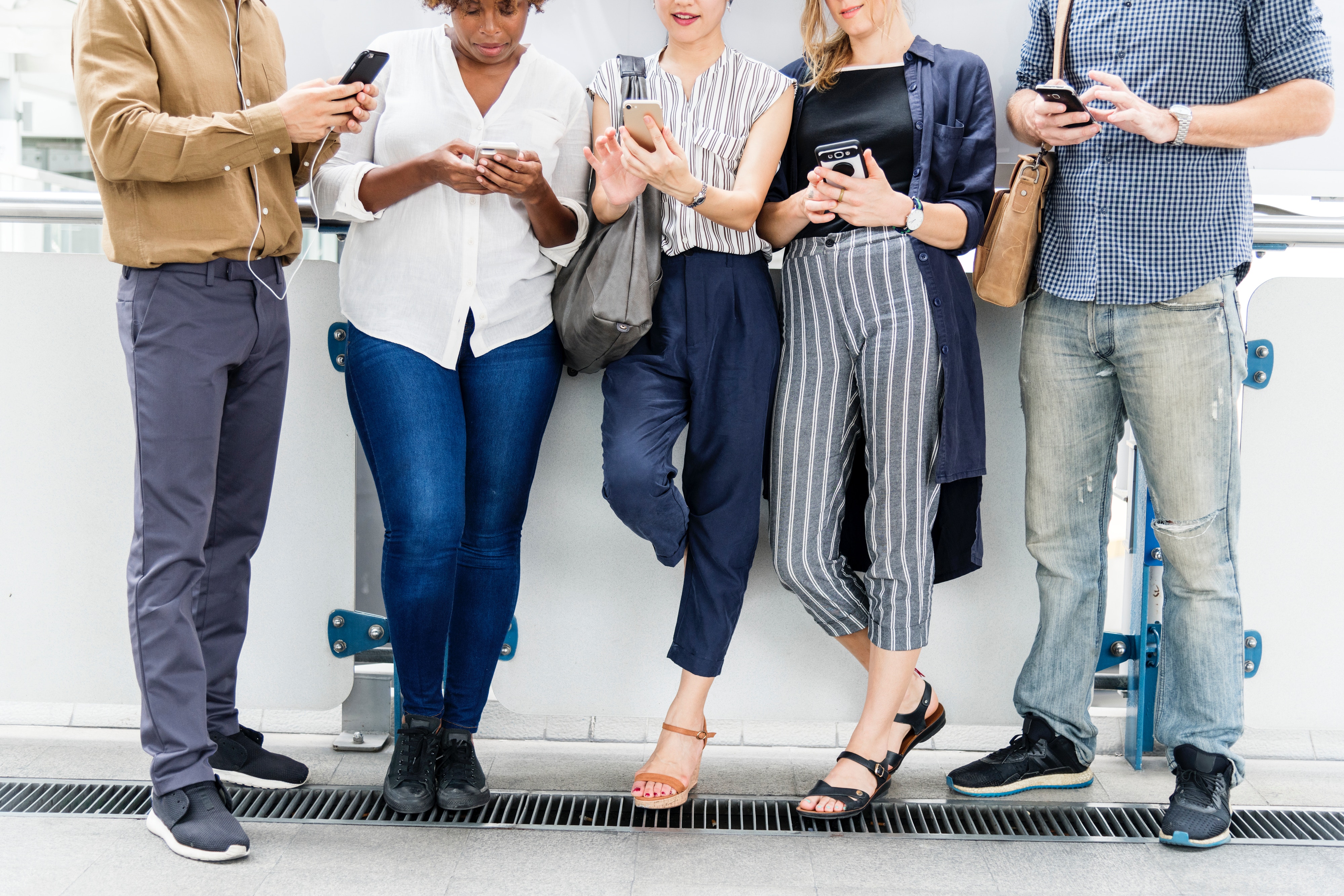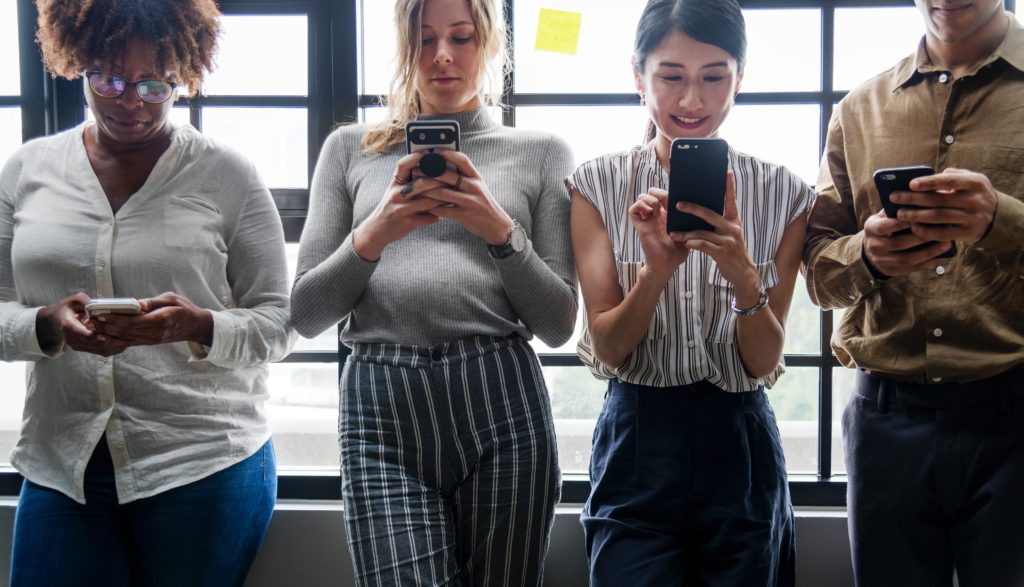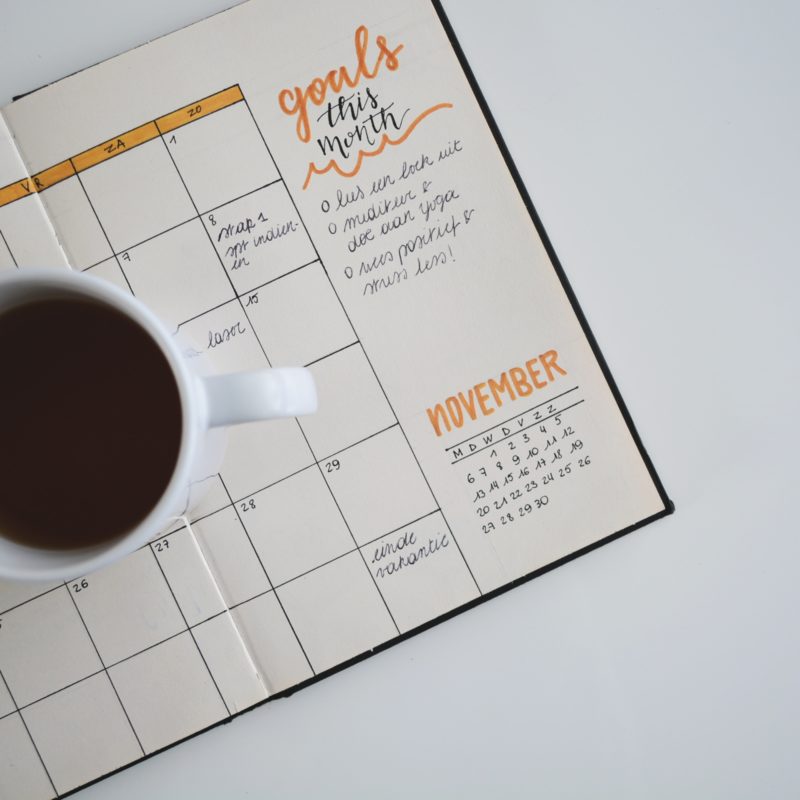
Are we better at 'hearing emotions' than seeing them?
With society's current amount of time spent looking at screens, we are using our eyes to a degree that is out of proportion from our other senses.
The other issue is that our eyes are not even our most powerful sense in terms of our ability to detect subtleties.
From a neuroscience perspective, our obsession with screens, and ‘visual stimulus’ is downgrading our multi-sensory intelligence.

(*shout-out to the artwork of Erin Pollock showing what people look like staring at their screens, but omitting the actual gadget from the painting).
Voice-only communication enhances empathic ability
A recent study by Michael Kraus at Yale University found that people were most accurate at identifying others’ emotions when they only heard people’s voices (compared to when they looked at facial expressions alone, or looked at facial expressions and heard voices).
Kraus did follow-up studies with Zoom (a video conference platform) in either audio-only or video + audio mode. Similar results. The researchers found that when we only listen to voice, we increase our attention to the subtleties in vocal tone.
*(I would be curious if using all our senses, like hearing + smell + heat detection, etc., would make us more or less accurate than voice only)
hmmm... Makes you wonder what Snapchat, Instagram and Facebook are doing to us as a society, no?
Humans use a powerful feature to 'project & detect' emotion:
we tense and relax muscles in our throat, face and mouth to indicate two emotion-laden things about us, which are happening at every moment: our intentions and our internal state.
This tightening and loosening of muscles changes the vibration of air molecules to create multiple frequencies that reflect how we feel internally.
It’s called “prosody”.
Our middle ear muscles then tighten or loosen the skin on our eardrums to send different signals to our brain based on all of these different frequencies.
What’s more, humans can detect over 5000 “just noticeable differences” (tiny nuances) of sound compared with only 180 JND’s when it comes to seeing the visible light spectrum.
Even when you watch a movie - like a scary one - it’s the sound that will make you feel anxious and jump out of your seat. If you mute the movie, you may even find it kind of funny.
Lower, base frequencies actually vibrate on our jawbone and trigger a ‘threat response’, in contrast to higher, melodic frequencies - which trigger a soothing response. Think of lullabies and and how many people talk to babies. (I go over this in Episode 2 of my podcast)
Studies also show that when a person tells a story to a listener, something amazing happens: their brainwaves literally synchronize with each other, called ‘neural coupling’.
Something very special occurs between humans when we hear each other’s voices.
And yet, many of us are consumed by what we look at on screens. (see the connection with Birdbox?)
We are using a much duller, less accurate sense - our eyes - to try to communicate emotional and socially.
And we’re often doing it while also neglecting all our other senses.

Screen time is dumbing down our spectacular multi-sensory capabilities
And it’s making us sick, and sad… and, as Bird Box alludes to, disconnected from each other.
(p.s.- I find it interesting that the author of the book Bird Box, Josh Malerman, is a musician. Go figure! )
So what can we do?
You can’t smell on the internet. You can’t feel the electricity* and heat that fluctuates on a person’s skin according to how anxious or calm they are.
(*‘galvanic skin response’ - something I used to measure at NYU).
And using your eyes all the time robs you from hearing the richness of information our sense of hearing, touch, taste and smell brings us.
When we use more of our senses with each other, instead of letting only our visual sense dominate our attention, we feel more satiated and connected because it's what we're biologically wired to do.
Here’s something to try (I do this regularly).
Best on a quiet street if possible, but wherever you can.
- As you’re walking around, for 30-60 seconds (or longer), look straight ahead so you’re not flitting your focus around,and just hear the sounds around you.
- Then do another 30-60 seconds focusing on what you smell.
- Then another few moments just feeling sensations - how your feet feel when they hit the ground, the temperature of the air on your skin.
When I do this, I can get into a state of incredible calm, focused attention.
It feels very good! It feels like it clears my head.
Think of how great a shower feels... it gives us our visual cortex a break and lets other senses come to the forefront, like heat and pressure receptors, and smell. This gives a nice pick-me-up of blood flow and electric activity to other circuits of the brain. This is partly why we can get great ideas in the shower - lots of fresh new neural firings!
When we use more of our senses, it improves our overall mind-brain-body health.
What do you think?


